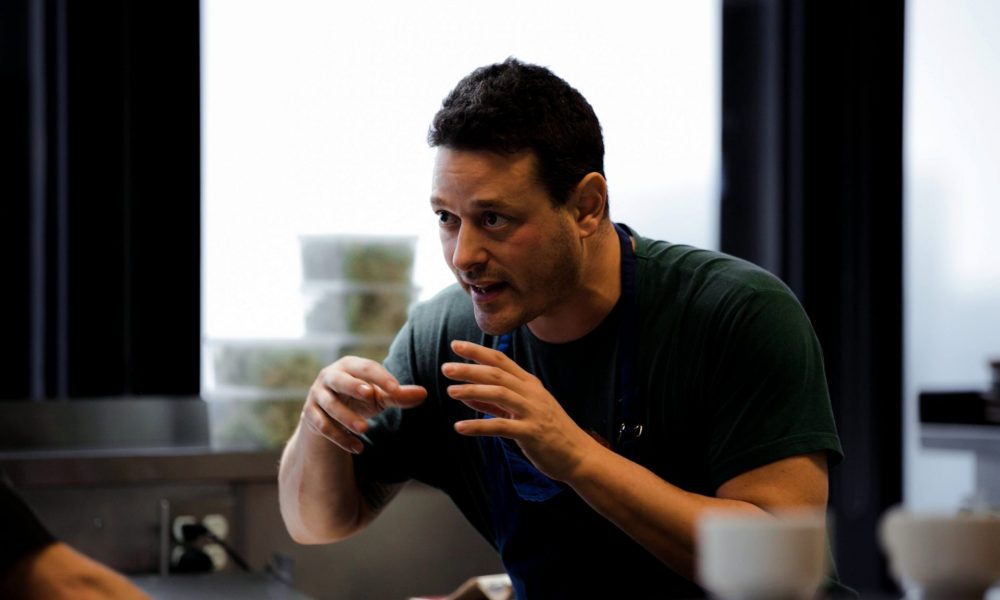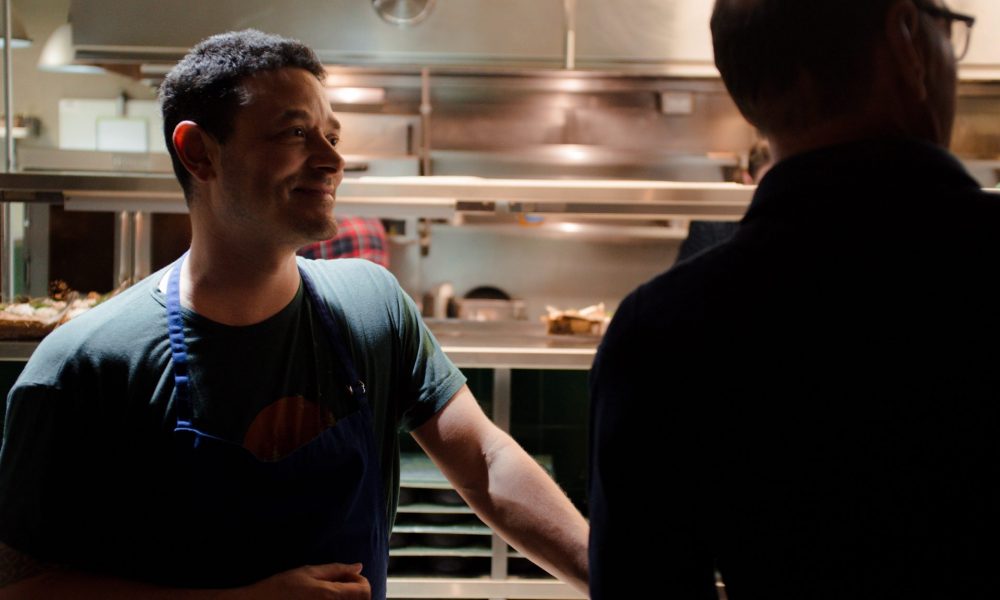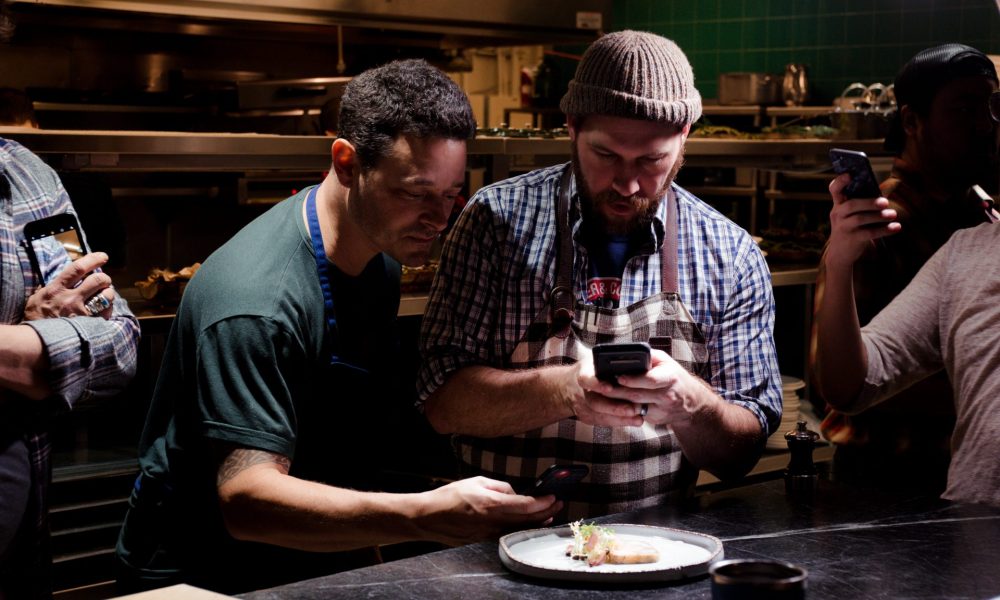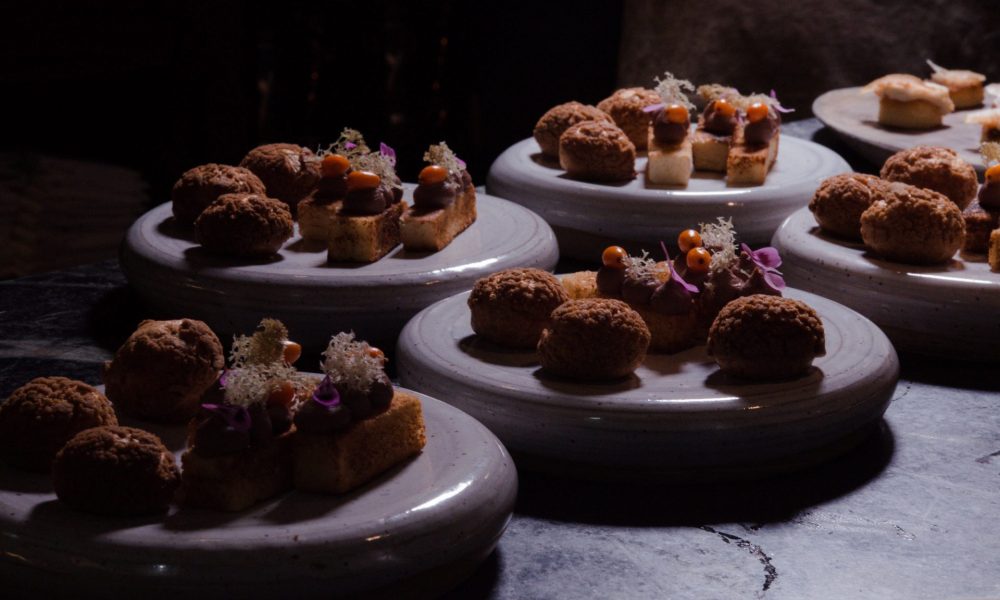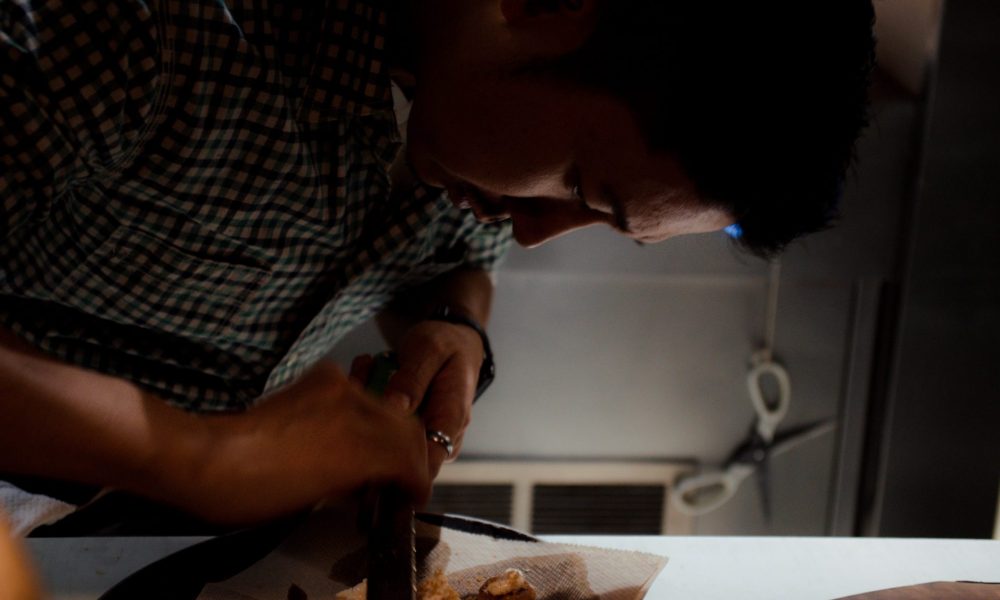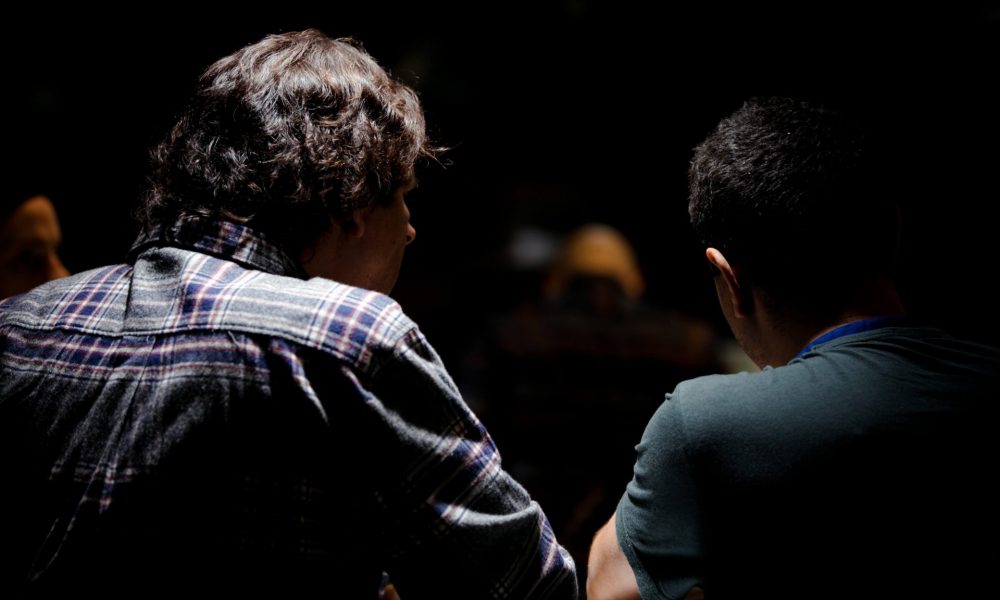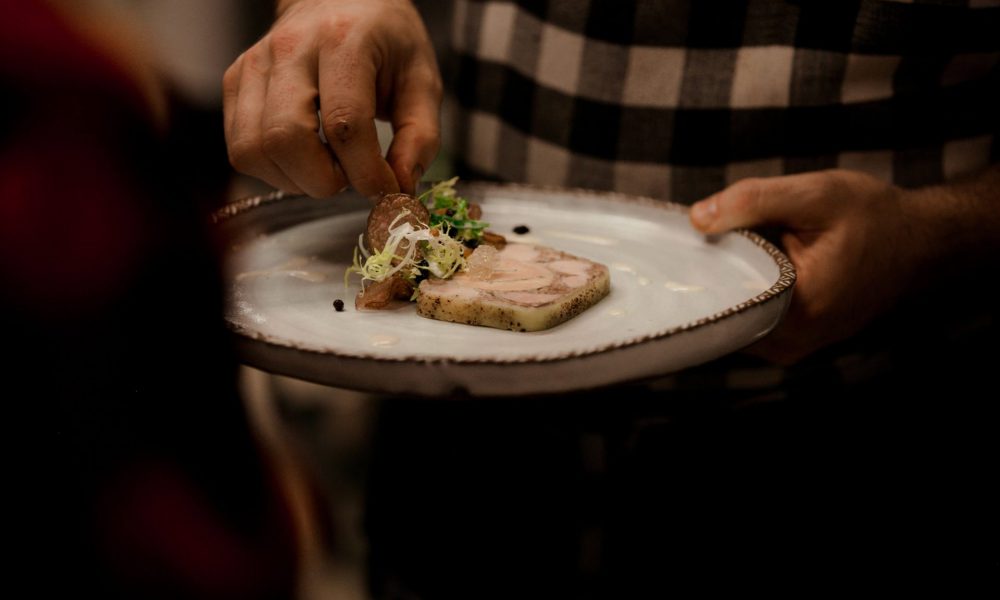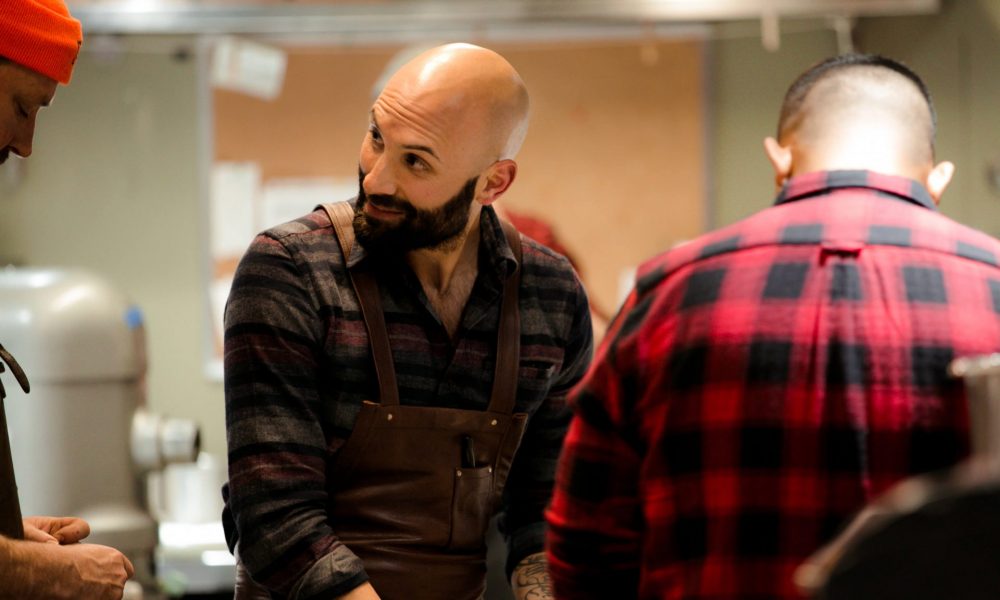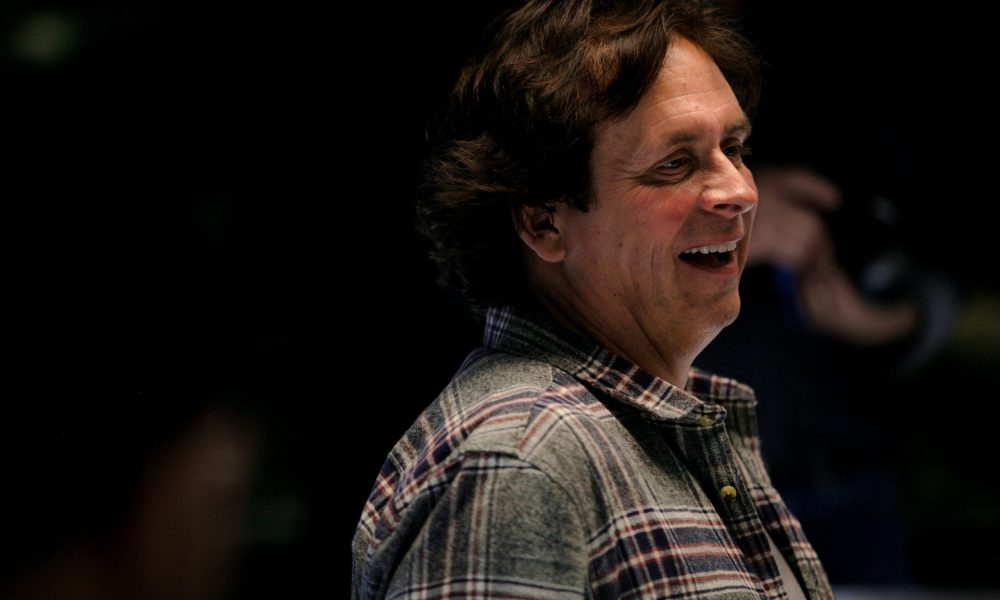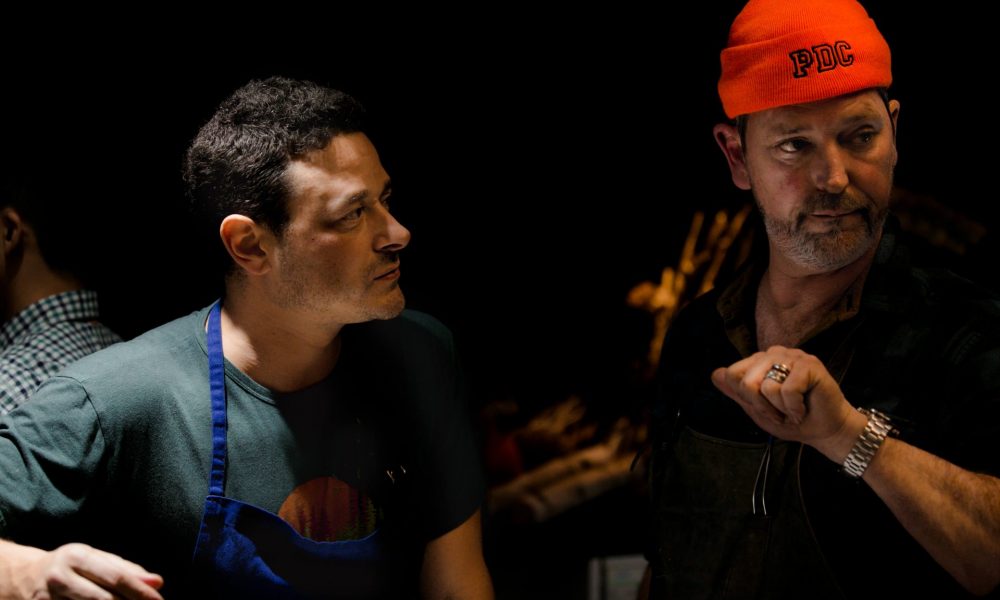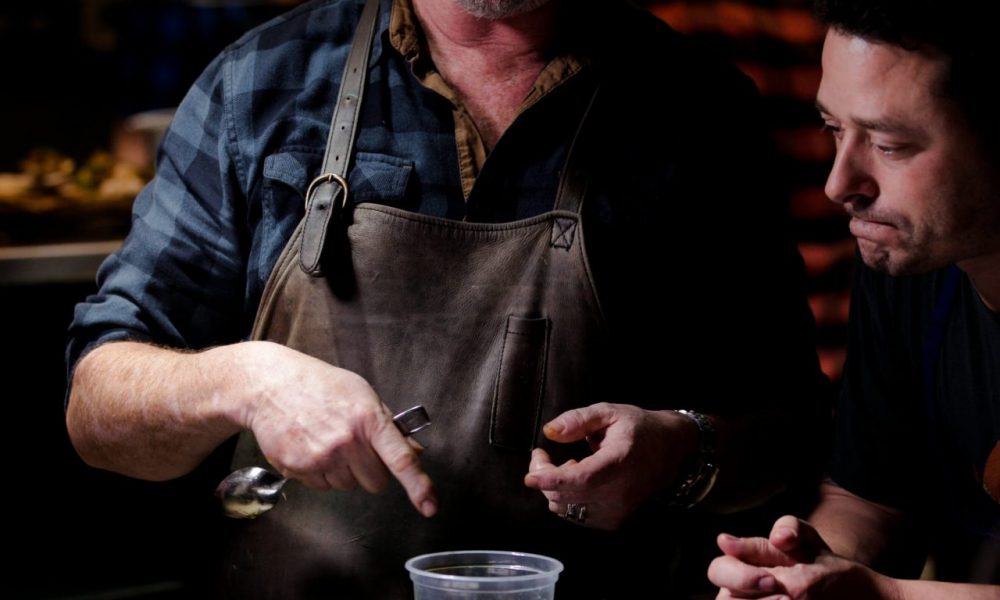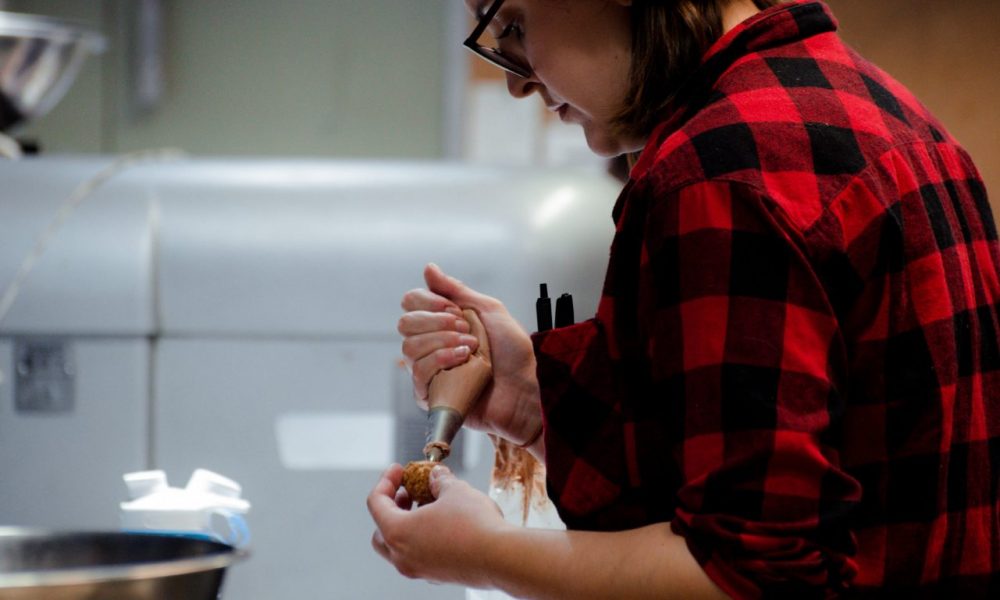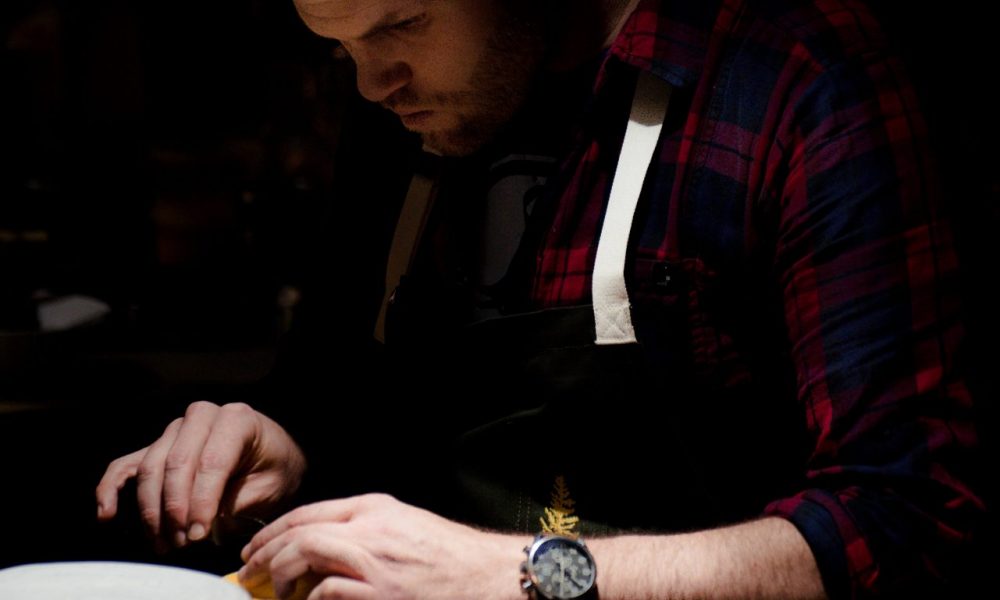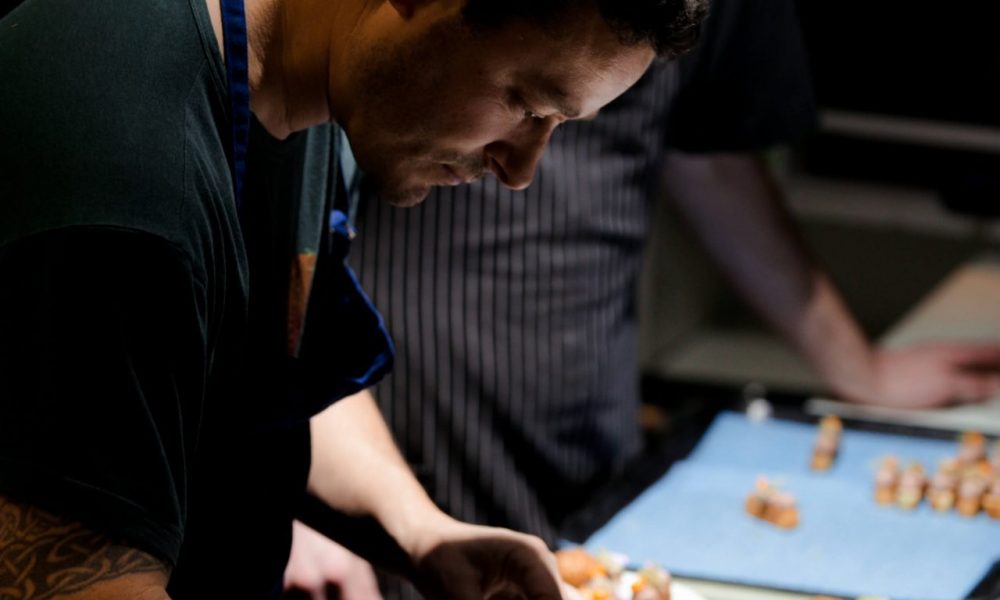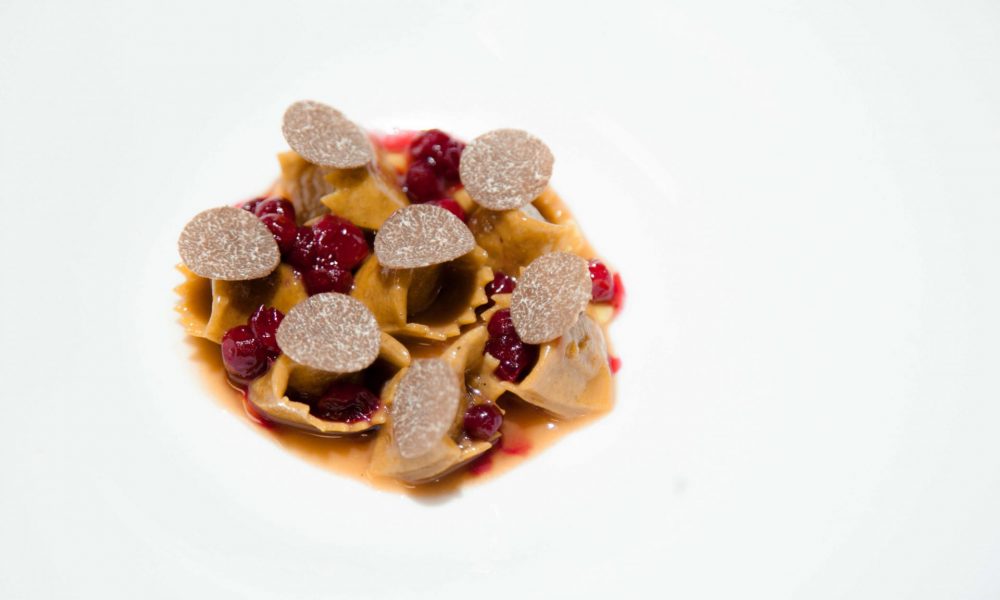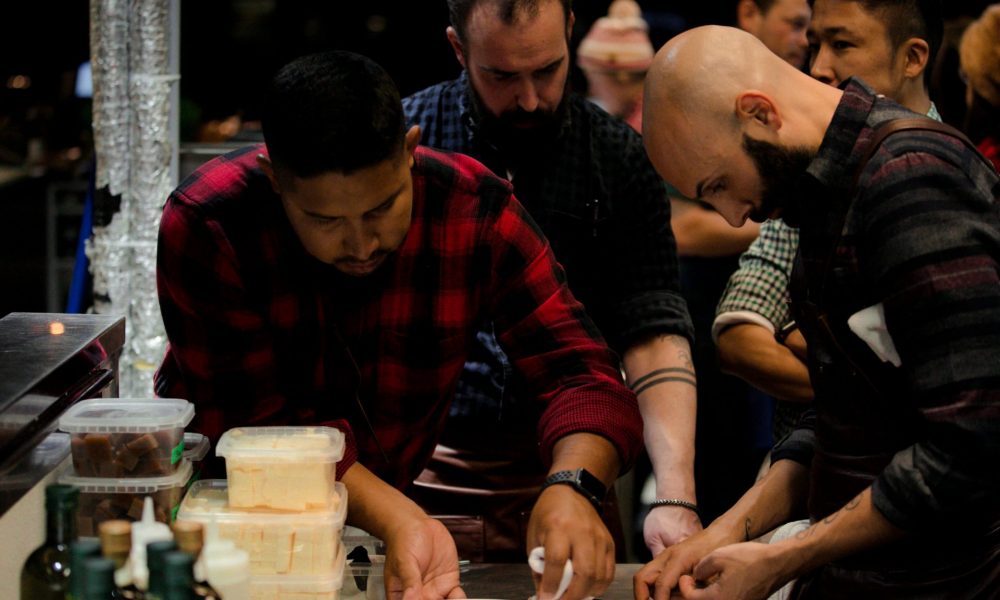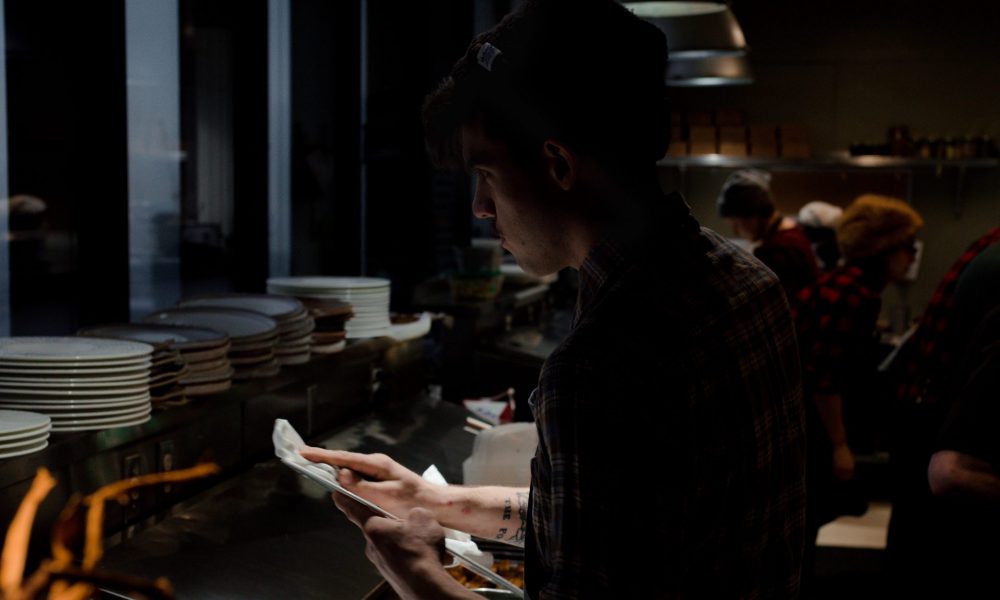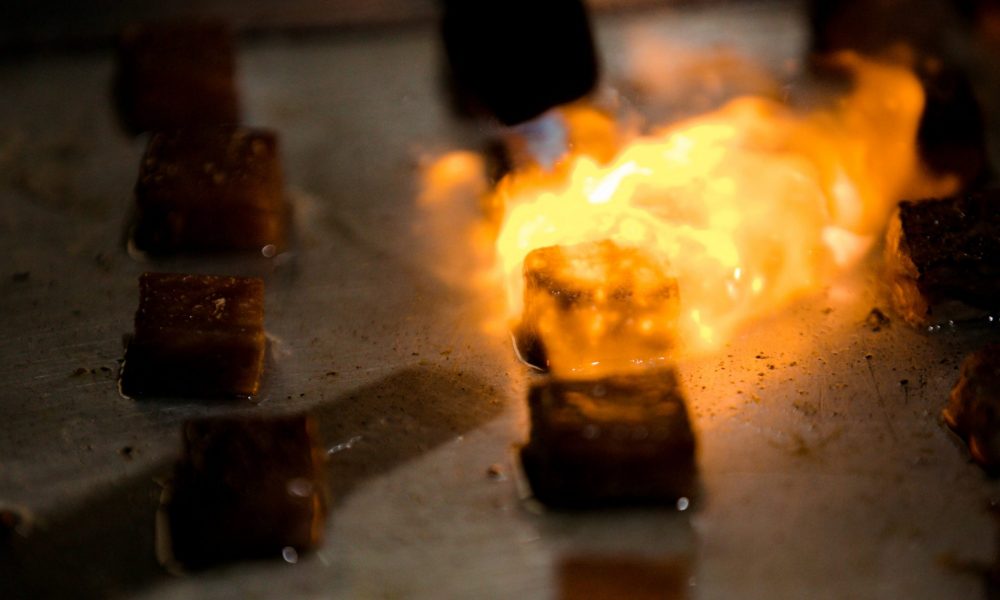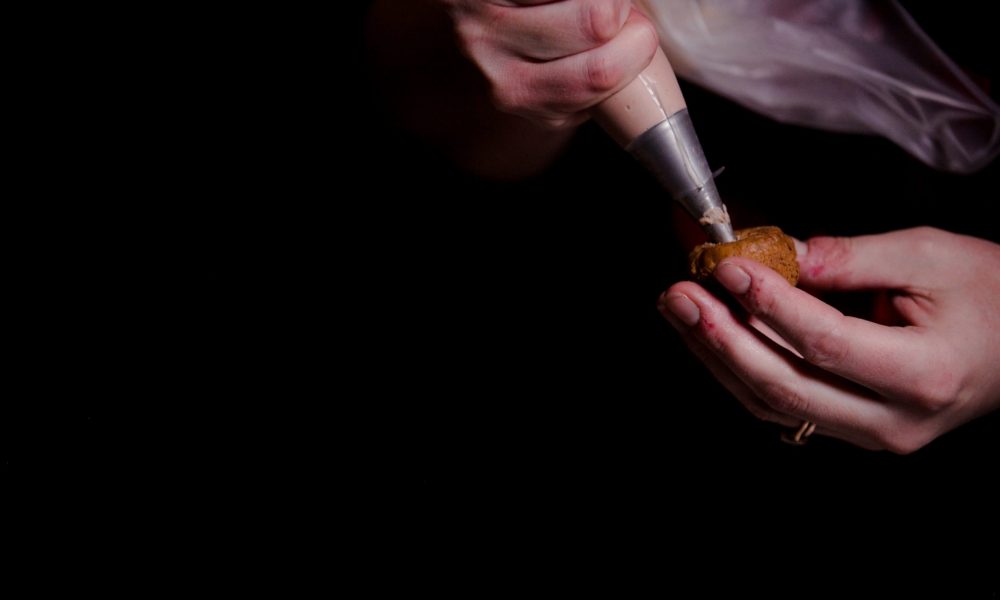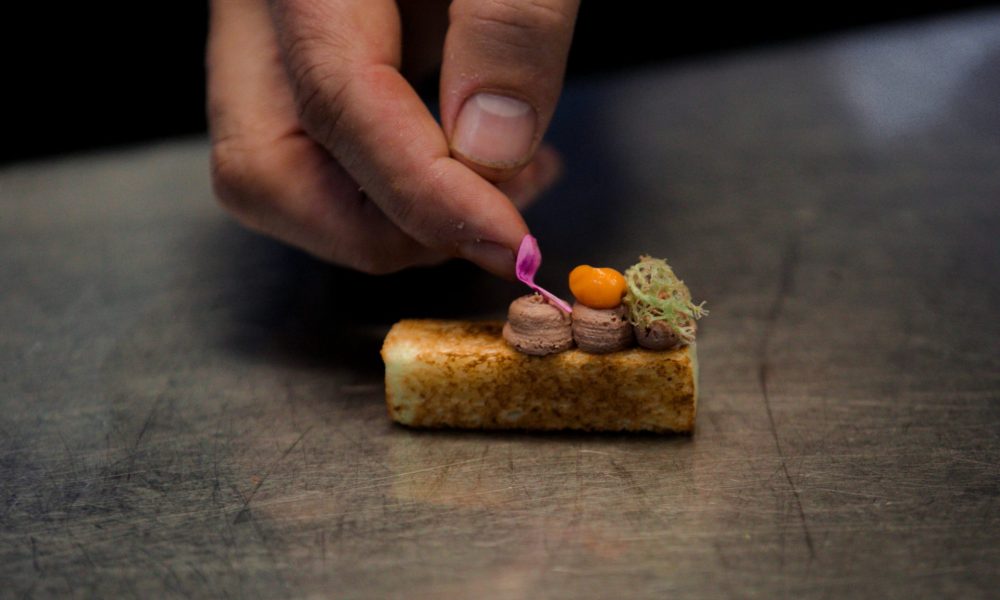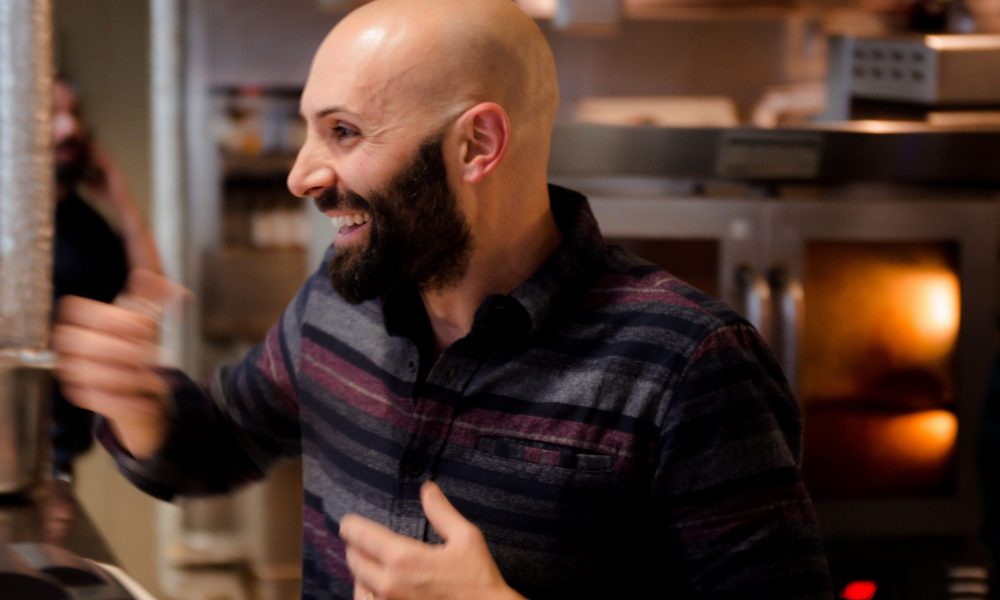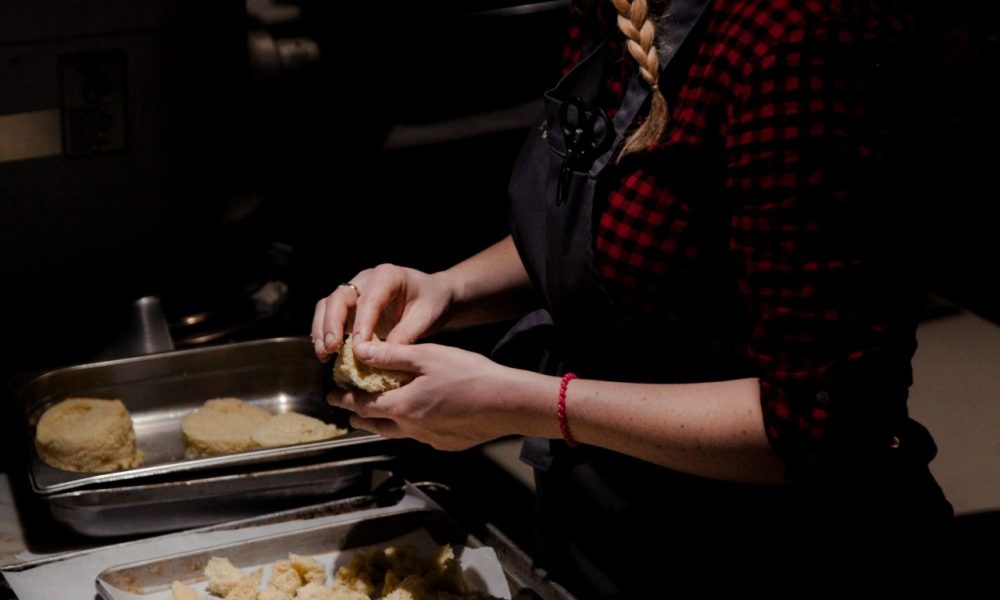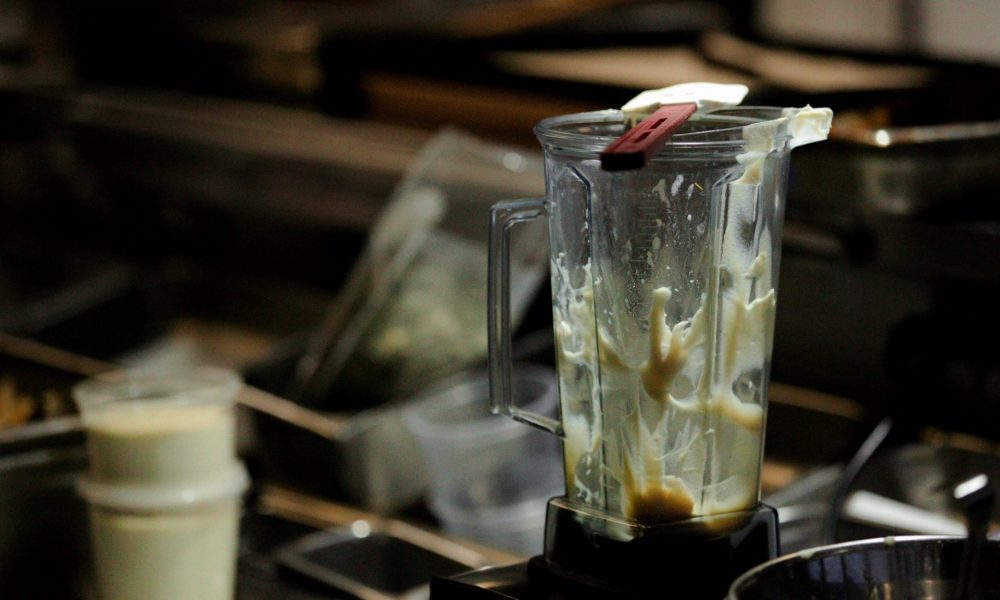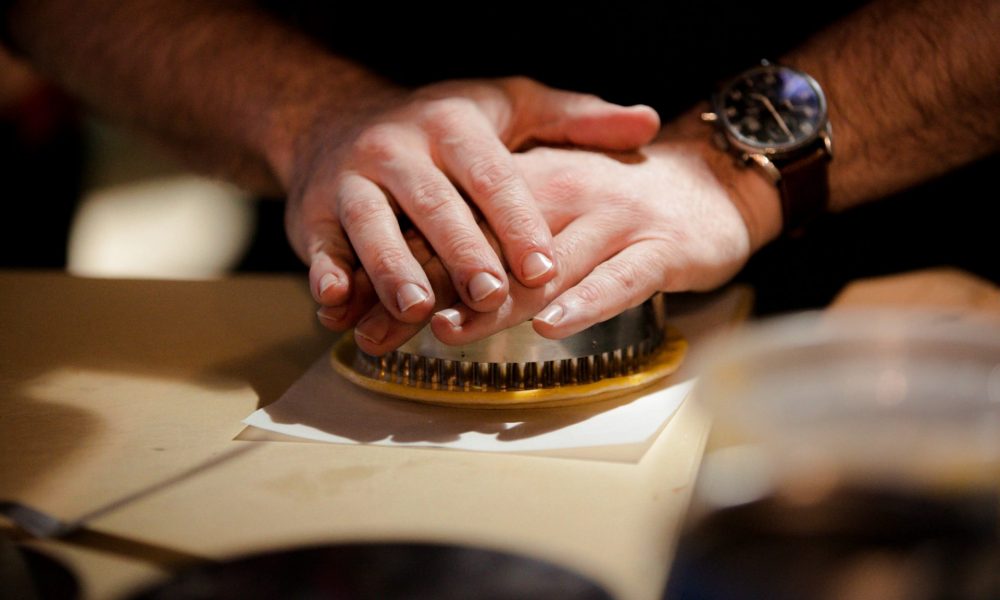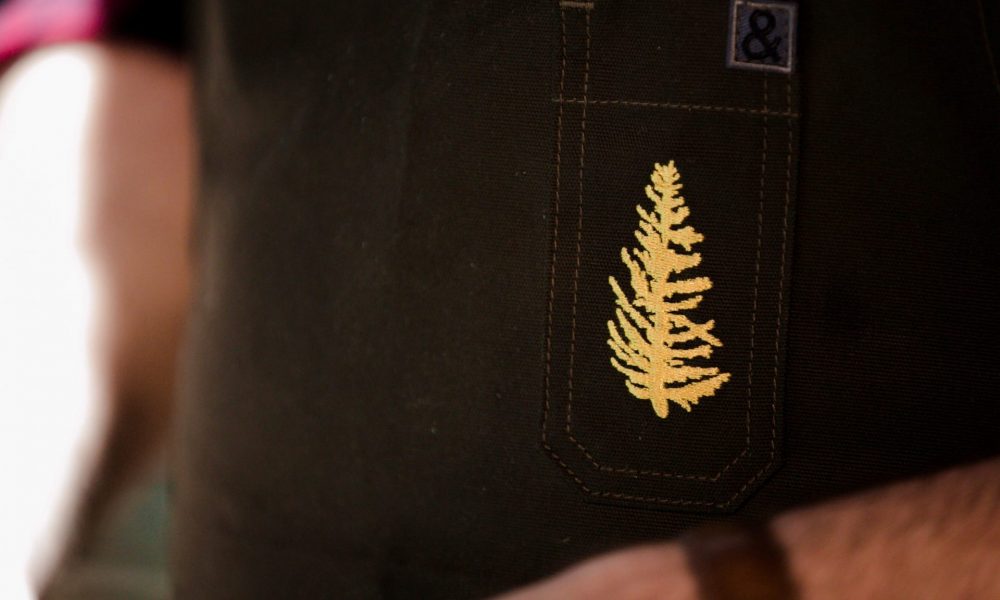Canoe Wild
Connecting people with food, giving back to the community, and the evolution of Canadian cuisine.
Walking into Canoe Wild early in the afternoon, we started to notice something very striking. As we looked into the star-studded kitchen, it dawned on us. We weren’t just seeing things. Everywhere we looked, everyone was wearing plaid. While at first we thought it might have been a humorous coincidence, we soon realised that this Canadian uniform was a well-planned, clothing-based reflection of what Canoe Wild is all about: an unashamed, unabashed celebration of Canadian food.
Over the course of the day, we spoke to each of the featured chefs, and photographed their preparation: Anthony Walsh (Corporate Executive Chef, O&B), John Horne (District Executive Chef, O&B), Cori Osborne (Pastry Chef, Bacchanal), Marc-Andre Royal (Head Chef/Owner, Le St-Urbain), Rob Gentile (Chef Director, Buca), and Ron McKinley (Head Chef, Canoe). A uniquely talented line-up, it was quite something to see this group working their magic in the same kitchen.
Each chef was preparing their own distinctly Canadian dish, working at a separate station. The energy was high, but noticeably relaxed. There was an intensity that grew as the hours ticked by, but tempers never flared and smiles never faded. Compared to normal service, Anthony Walsh described today as people “seriously kicking back”. These chefs were there to have fun, to try something different, and to learn from each other. So much so that, as Head Chef Ron McKinley informed us, all of the Canoe cooks came in voluntarily for this day. They gave up their time for free to enjoy the event, to see beautifully crafted food, and to learn from some of Canada’s most gifted chefs.
With people so eager to participate in Canoe Wild, it is surprising to learn that it was only started in 2012. It began when John Horne was introduced to Société-Orignal, a foraging company based out of Quebec. Describing it as an “a-ha” moment when he first met them, they turned up to Canoe with native wild ingredients. Even with his experience at that time, these were ingredients that John didn’t even know he could get, nor even knew existed. Having grown up hunting and experiencing wild Canada, these new ingredients resonated with John, and inspired him to create this very special event. An event that connects people to Canadian food, and instills a respect toward where that food came from. “Canoe Wild was a way to share my experiences in the woods of Canada, on a plate, with guests who have supported me through thick and thin.”
Since its creation, Canoe Wild has grown into an event that sells out in minutes and attracts the very best in food. As an experience that carries a real message and a real purpose, it is easy to see where this popularity has come from. Asking each chef individually about what Canoe Wild meant to them, they all shared a near-identical philosophy. This was about connecting people to food. Giving people an education on where food comes from, and exposing them to new ways of eating, new ways of harvesting, and new ways of sourcing. For those chefs preparing meat, it was about respecting the animal. As Rob Gentile, Buca Chef Director, put it, “When you shoot a moose, it is a ceremony of respect. And that’s what it should be…An animal is a special thing. It has a beating heart.”
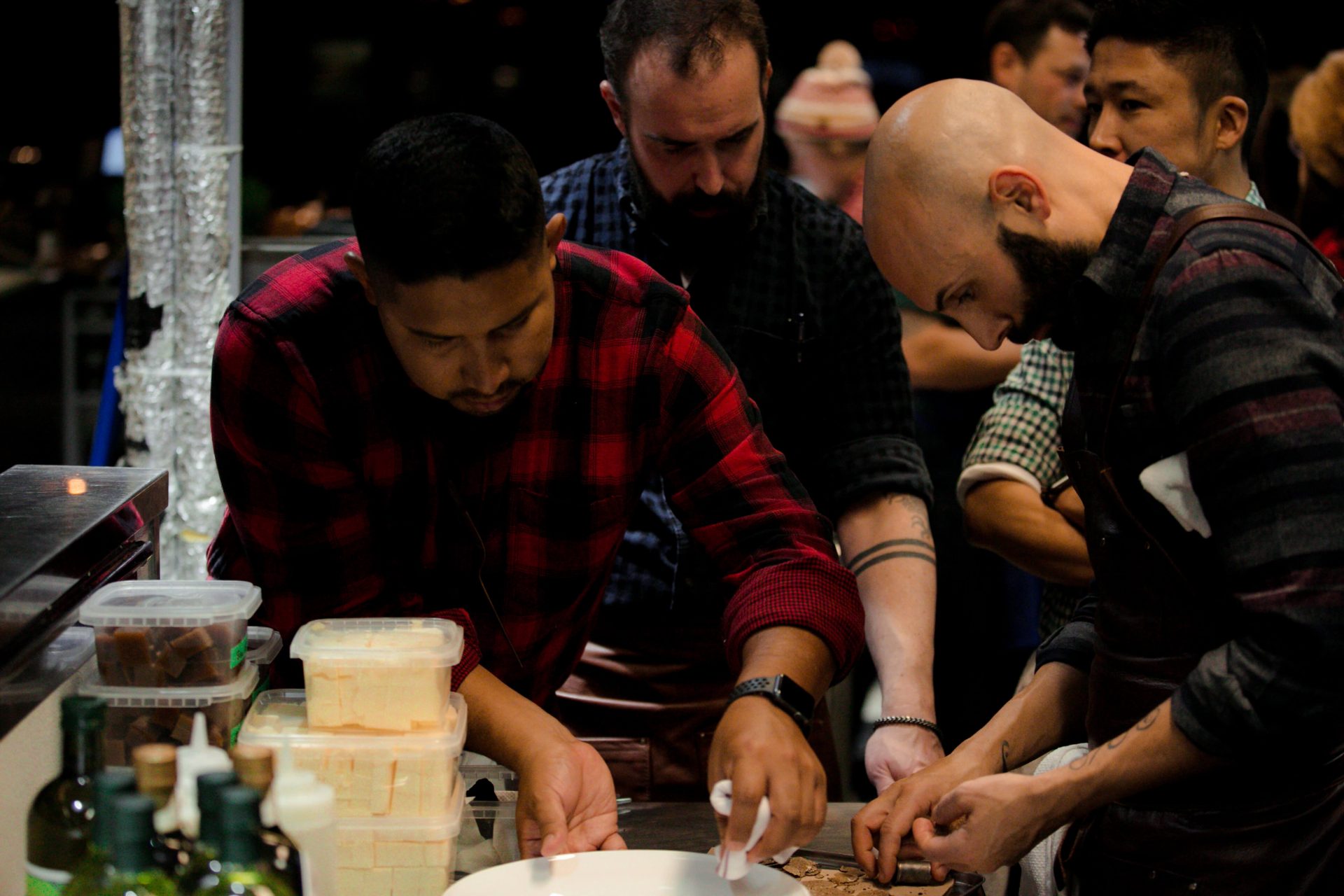
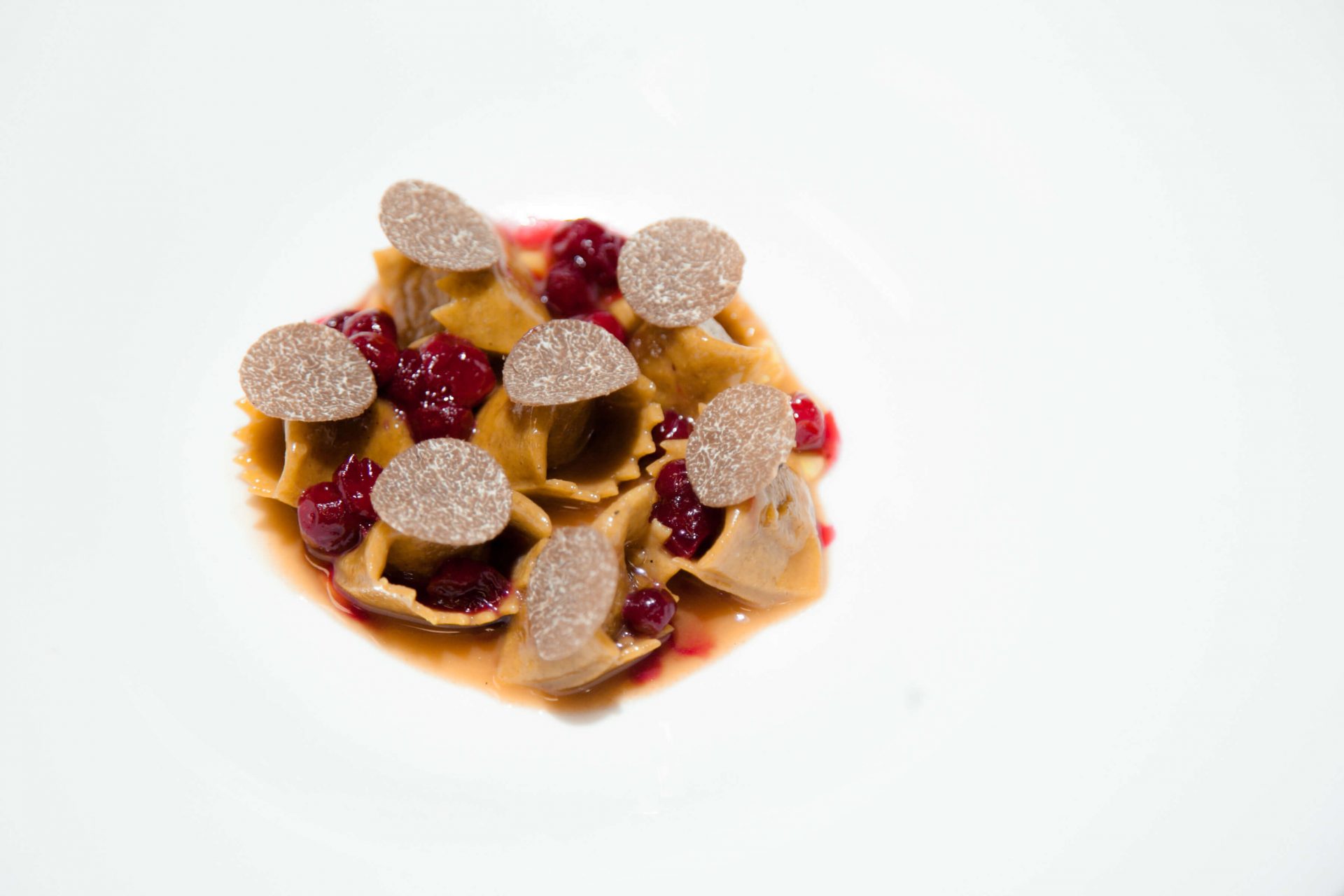
Tied closely to this idea of respect was to ensure no waste, and this was evident in the dishes being prepared for the evening. John cooked a wild turkey train as a way of ensuring he could use every part of the animal in a single dish. Ron created his ‘Everything Pithivier’ to combine ingredients that are otherwise difficult to use, bringing together duck legs, foie gras, confit duck, duck liver, moose liver, and braised elk leg, with a sauce made from elk bones and evergreen flavours. From these dishes alone, we could see how seriously the chefs were taking their role at Canoe Wild. There was a real shared desire to convey a message through food, and to make sure the guests took something away from their experience.
The passion that everyone at Canoe that day had for this project was obvious. “Canoe Wild is a celebration. It has nothing to do with me and my dish…It is an honour to be a part of the celebration of Canadian ingredients, Canadian food, and Canadian food culture”, Rob told us. So this wasn’t about celebrity chefs, egos, or anyone showing off. This was about the ingredients being eaten, and where they came from. Cori Osborne explained that she wanted guests to gain an understanding and a respect for hunting and gathering ethically and sustainably, and to see that there are better ways to eat to reduce our waste.
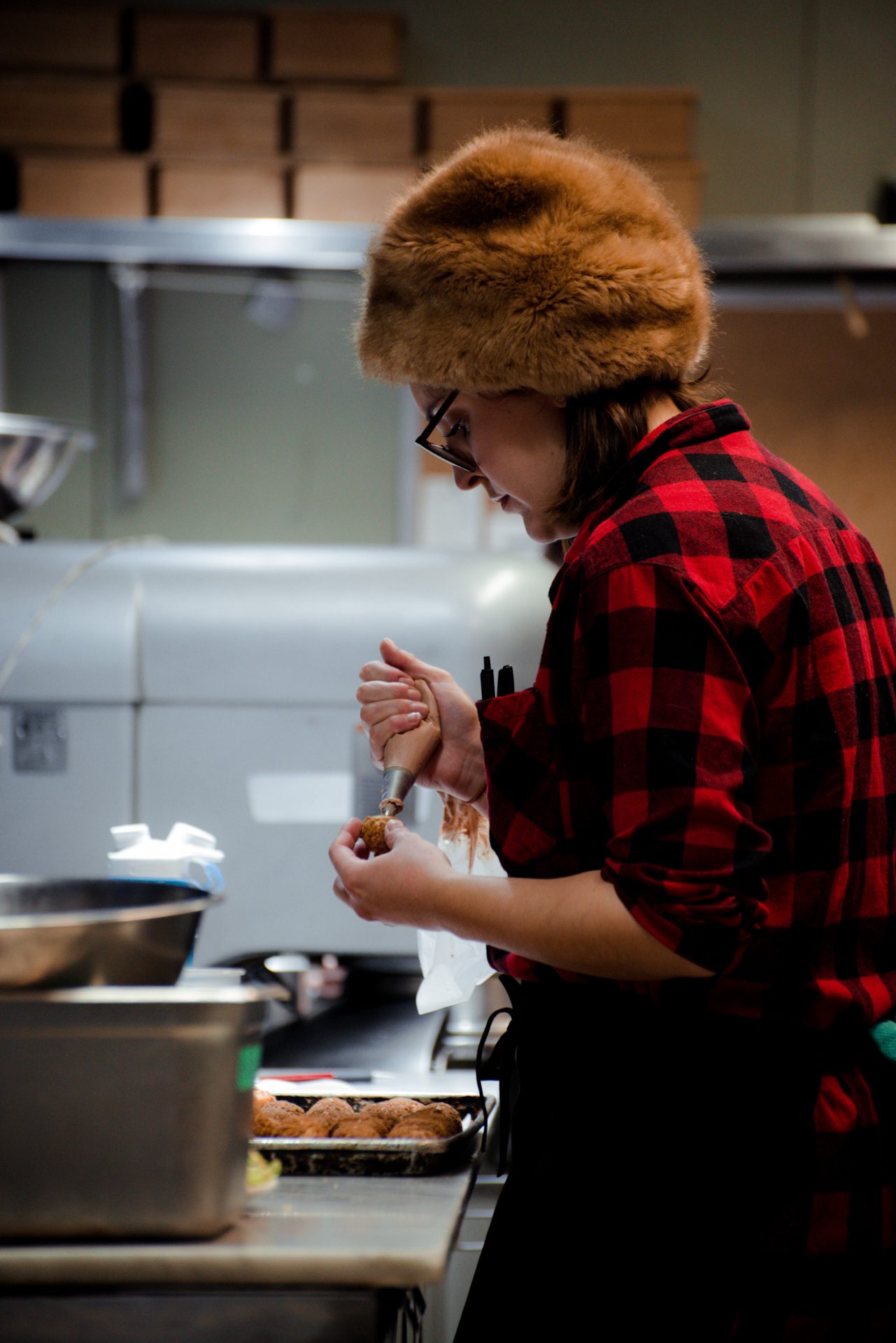
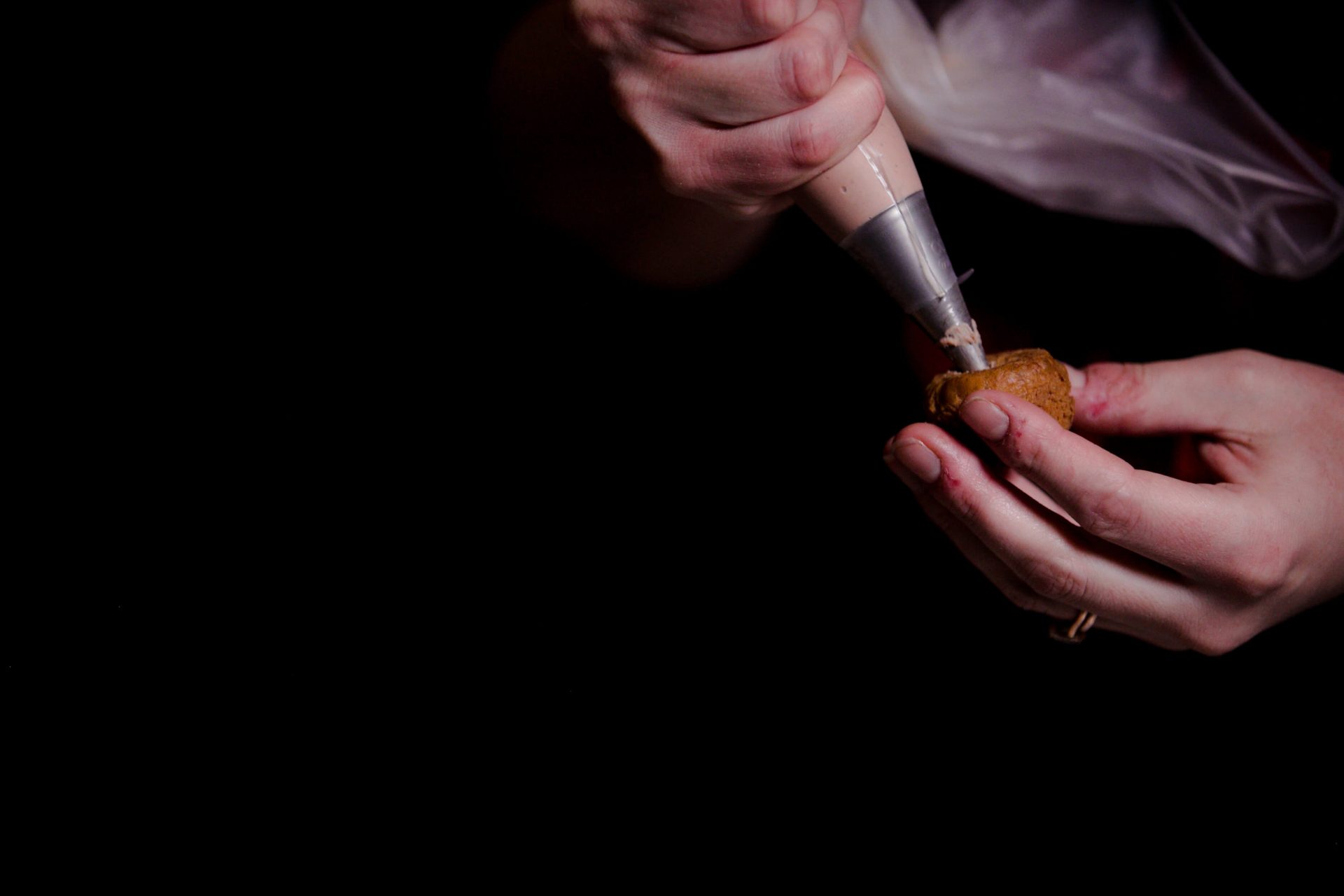
And Rob was keen to emphasise that “in the world of food, and the world of understanding where your food comes from, you should still have the same amount of respect for a pumpkin, or a leek, or anything. Because that garden, that vegetable, that crop, was tended to”. This mutual understanding between all the chefs seems to have been borne from shared experiences in their younger lives – whether it was Cori baking with her mother, or John hunting in the wilderness, or Rob helping his parents tend to their garden. They have all been intimately connected to food, and it is this experience and this respect they all wanted to impart on the guests of Canoe Wild. Even in their professional lives, they live this lesson. For Marc, the story of where his ingredients come from is everything. He sources ingredients from those he has built relationships with – with small families and small businesses. When he visits the producer of his vinegar, for example, he and his family will stay in Niagara for 2 to 3 days. This way, he says, you respect the product more, and “the product is better because the chain is smaller.” For John Horne, he describes the ingredients available in Canada as “second-to-none in the world”, with a mission to use that offering each and every day in his kitchens.
Thus, along with its charitable contributions, with all ticket receipts going to Wounded Warriors, the point of Canoe Wild is to give back. Give back to nature, give back to the community, and give back to the guests. It isn’t any typical fine-dining experience. It carries a noble goal at it’s very core, which is to bring people and food together in every sense.
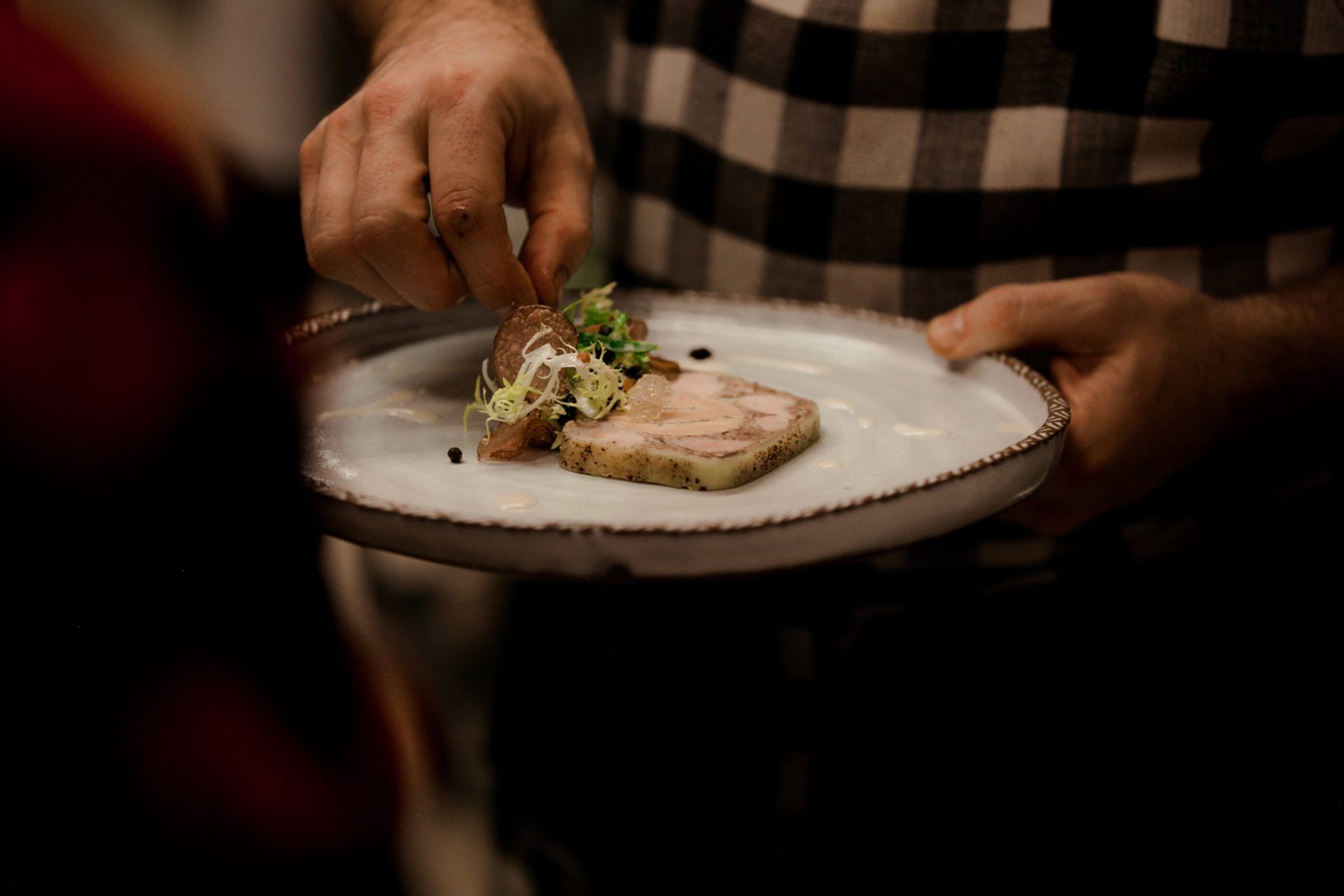
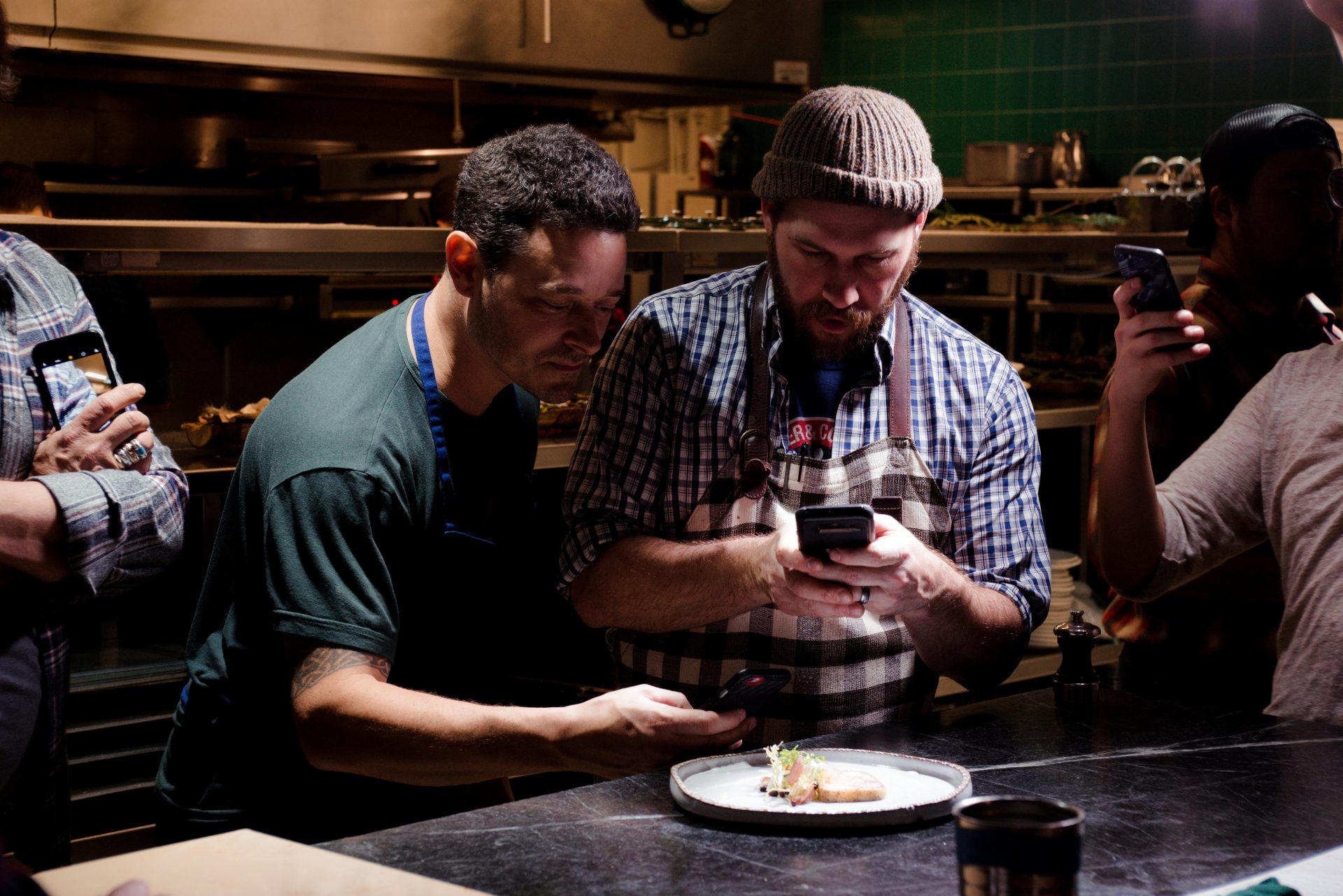
Yet, despite all this talk of Canadian food, it was curious that none of these influential chefs could easily define “Canadian cuisine” when we asked them about it. In fact, most of them outright admitted they did not know what it was. Instead, it seems Canoe Wild is part of the growing narrative of what makes up the Canadian food identity. It isn’t something that can be as readily described as somewhere like France, for example. We have a young country, and so what makes our cuisine has to be framed differently.
The consensus among the chefs was that Canadian cuisine is defined by ingredients. We don’t have any big classic dishes, or any real definition of what makes our food identity. What we do have, however, is a melting pot of cultures, styles, and histories that continue to shape our cooking. Indeed, Rob Gentile had somewhat of a realisation about his own restaurant while sitting and talking to us: “I’d never thought of this before. Now I’m going to go back to my marketing people and telling them we are Italian-inspired Canadian cuisine.” And so his dish for the evening, a moose heart and bison agnolotti, was a product of Canada, with ideas imported from Italy.
So, despite not knowing what Canadian cuisine is, it seems that every cook in the kitchen was preparing it. Native ingredients making up recipes with global influence. As well as educating guests on food, Canoe Wild is therefore also part of this journey of building our food culture, where chefs like those at Canoe are constantly defining what it is. Across the country there are huge differences in how and what we eat, from east coast to west coast, but it all feeds into a growing narrative of this country’s culinary identity. Our cuisine might not be so readily defined as more traditional ideals, but it is there, and crafted from ingredients that are undeniably Canadian.
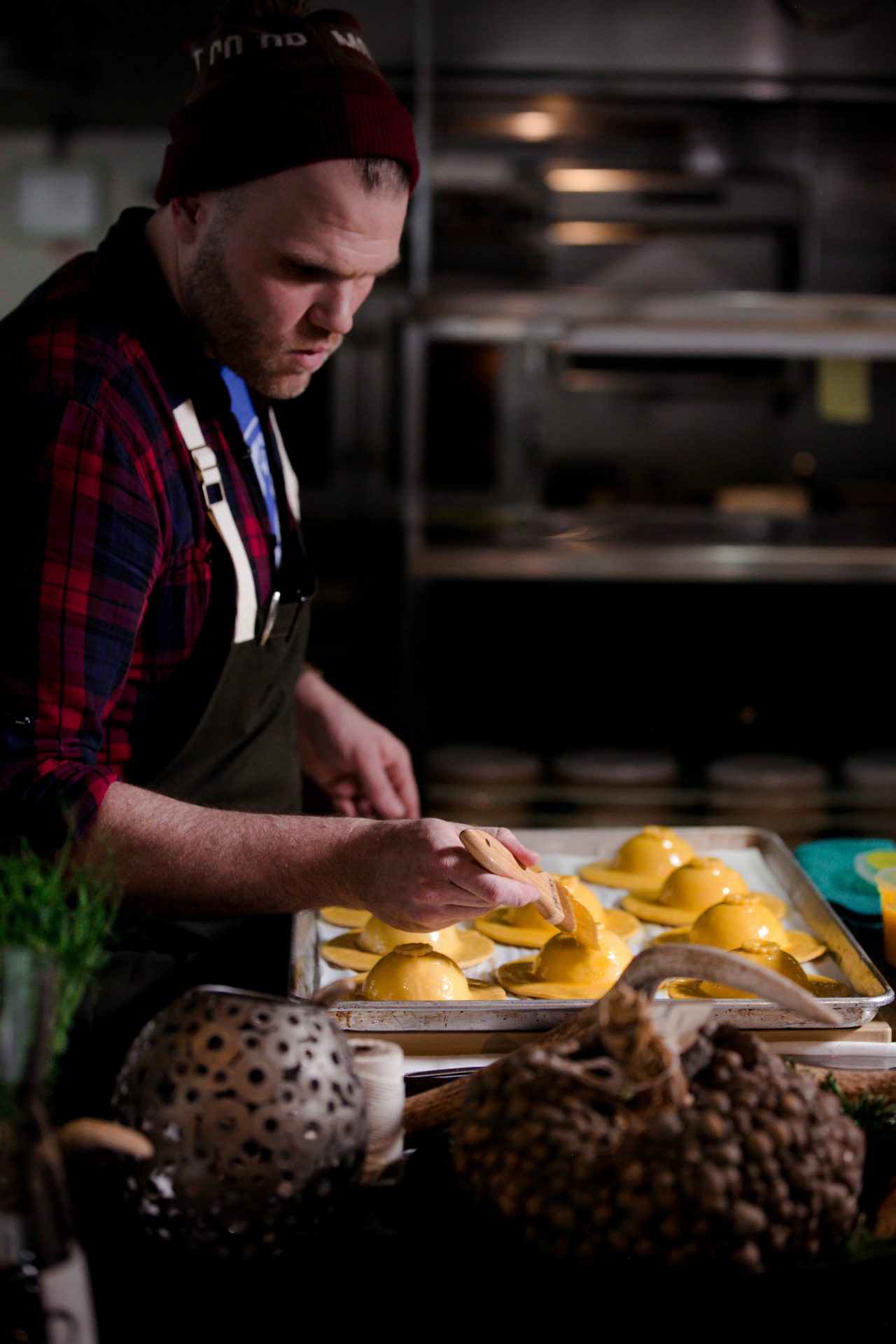
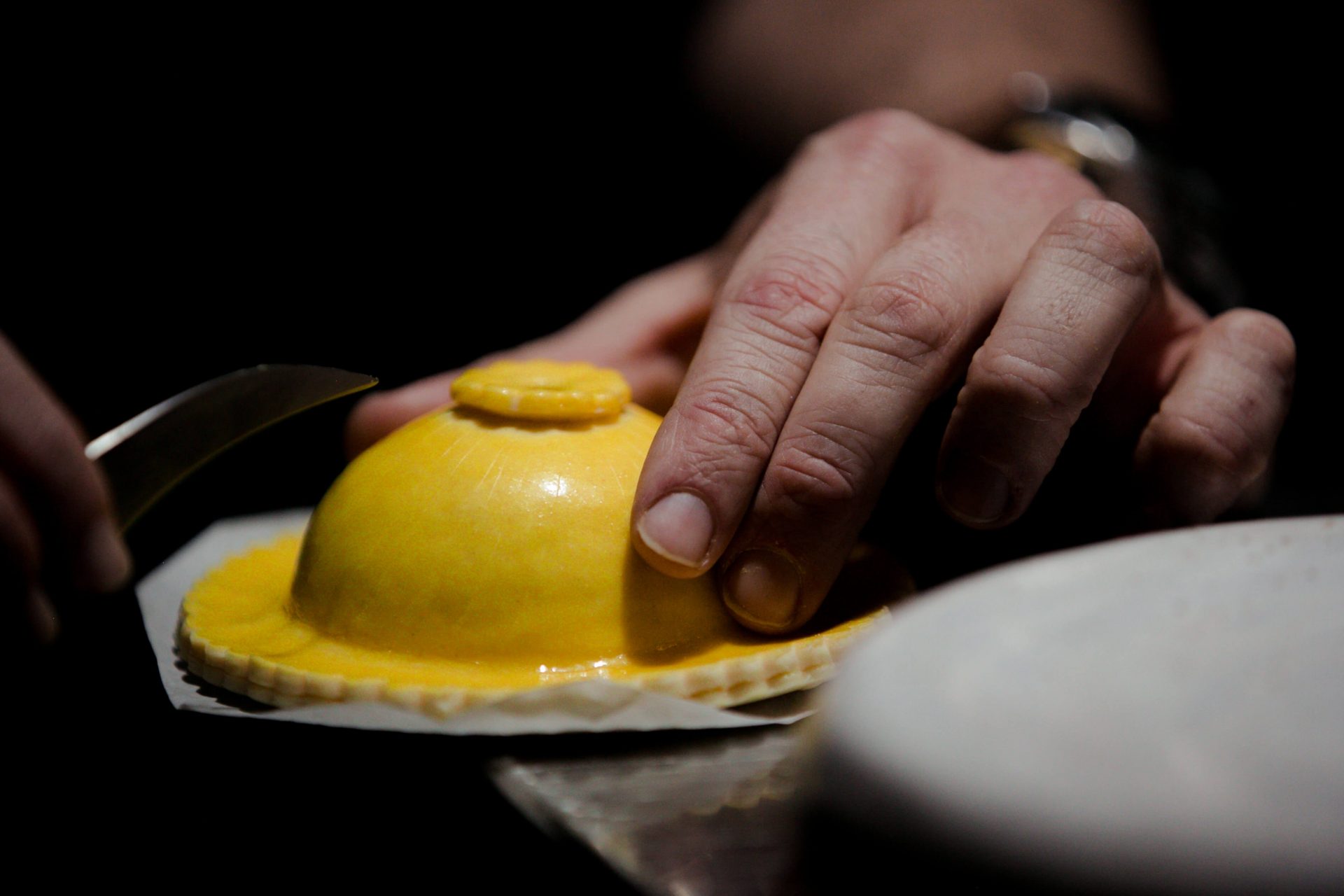
And thus, as dinner service came around, we were lucky enough to indulge ourselves in Canoe’s own version of Canadian cooking. From seal tartar, to candy cap mushrooms, to wild turkey, the dishes on offer were original compilations of beautiful ingredients. Each as unique as the last, they were all unmistakably Canadian, and all carried this message of connecting us to food. Each chef was given the chance to introduce their dish, and inform guests of its origins, further pushing this idea that we weren’t just sitting down for a meal. This was a true appreciation of food, where each dish, each animal, and each ingredient were given a platform, and where they truly took centre stage. Surprisingly, for an event filled with superstars, the day had nothing to do with them. This was about giving back and opening minds.
With each thoughtfully presented dish, served with locally sourced wines from Big Head, we were able to reflect on everything we had heard and captured. With so much passion and heart put into every part of every meal, and with each ingredient meticulously planned and sourced, it was hard not to ponder this message that each chef was trying to convey through food. The idea that we must respect food. We must respect those who produce our food. We must respect the land that gives us these ingredients.
And what better way to get people to understand this than through a dish on someone’s plate. As Anthony Walsh told us, “food is a truly universal language. Not that it’s an art form, even though aspects of it are. But it is a medium that really transcends all borders – age, politics, religion. It is the one thing we all share.”

